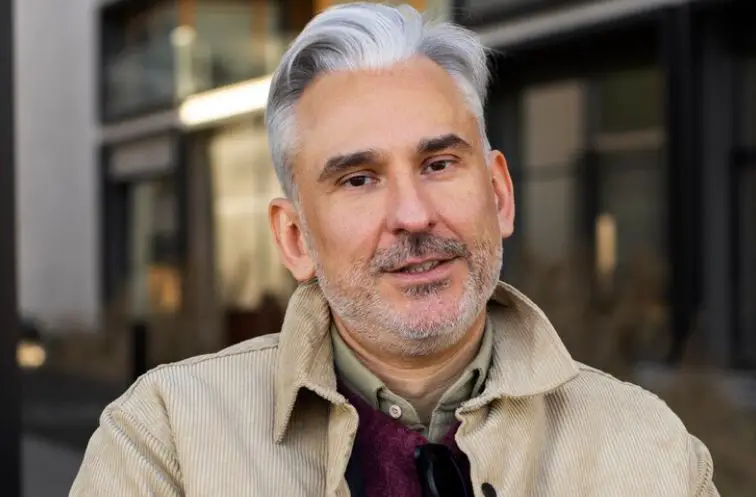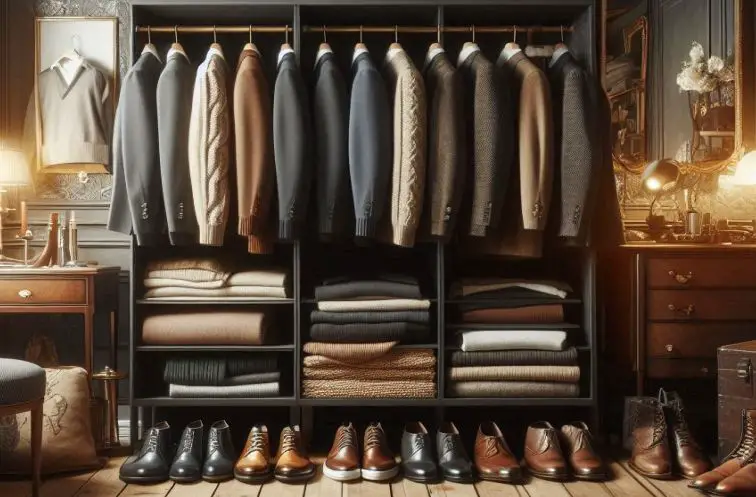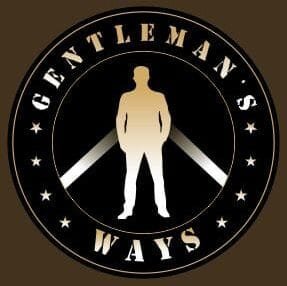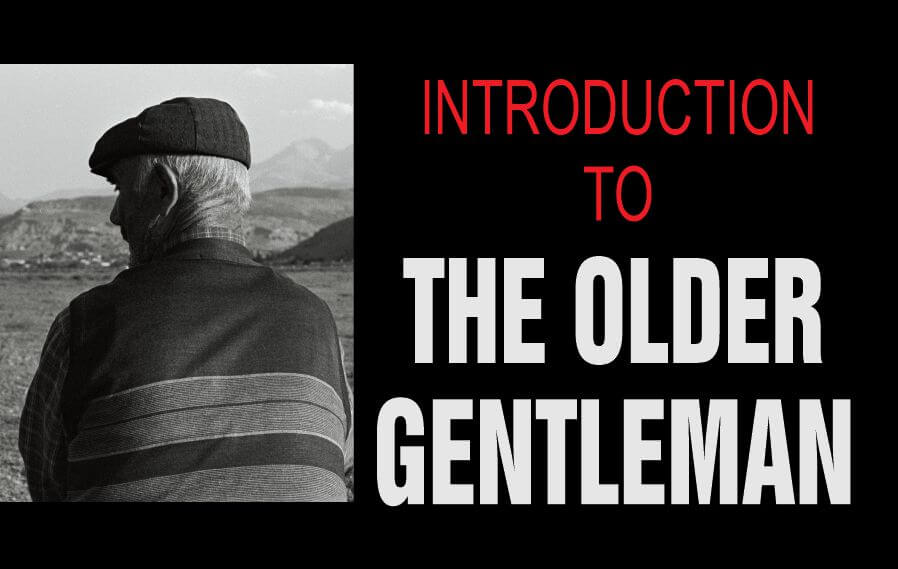Last updated on February 1st, 2026 at 07:14 am
Master the art of being an older gentleman, where class meets wisdom, style commands respect, and etiquette defines presence. Age with distinction, and live with purpose.
The older gentleman stands apart. He’s not just an aging man honing his silver fox traits, but someone who understands the power of presence, the weight of words, and the strength of quiet confidence. If you want to embody this, it’s not about money or status.
It’s about how you treat people, how you carry yourself, and how you respond to life’s challenges.
You don’t need designer suits or luxury cars. The true class comes from your actions, respect, patience, and knowing when to speak and when to listen. A gentleman commands attention without demanding it.
It’s not about showing off knowledge but having a deep curiosity. Read, travel, and engage in real conversations. Stay sharp, and never stop learning.
Holding the door, giving a firm handshake, and making eye contact, all small things that leave a lasting impact. The world respects a man who respects others.
However, navigating this stage of life comes with challenges, including health issues, financial insecurity, and more.
Being an older gentleman isn’t a title you claim, it’s a reputation you earn.
Recommended: How Older Men Can Overcome Loneliness
Table of Contents
Who Is an Older Gentleman?
An older gentleman is an older man in his late 40s and beyond who carries himself with dignity, wisdom, and refinement. Age brings experience, shaping his character, values, and outlook on life. He embraces maturity, practices good etiquette, and treats others with respect.
His confidence comes from life lessons, not arrogance. Whether in personal relationships, business, or social settings, he leads with integrity and composure.
An older gentleman values meaningful conversations, self-discipline, and a well-groomed appearance.
He understands that true sophistication is not about wealth but about character, making him a respected figure in any environment.
The Older Gentleman: Class, Sophistication, and Etiquette

You’ve lived, learned, and gained wisdom over the years. But being an older gentleman is more than just experience.
It’s about how you carry yourself, how you treat others, and the values you uphold. It’s far from being about wealth or status. It’s about character, presence, and knowing what truly matters.
Class: More Than Appearance
True class isn’t in the clothes you wear but in how you present yourself. It’s in your posture, your words, and your ability to handle situations with calm and confidence.
You don’t demand respect, you earn it by giving it first.
Sophistication: A Life of Learning
You don’t have to be a scholar to be sophisticated. Stay curious, read widely, and engage in meaningful conversations.
Whether it’s art, history, or current affairs, knowing a little about a lot makes you someone people want to talk to.
Etiquette: The Mark of a Gentleman
The older gentleman is a master of etiquette and manners. Small gestures make a big difference. A firm handshake, holding the door, and writing a thoughtful note, these habits show respect and consideration.
In a world that’s losing its manners, you stand out by keeping them alive.
Related: Fashion Tips for Older Men
Sophistication in Style: The Older Gentleman’s Wardrobe

Your wardrobe is a reflection of experience, taste, and refinement. As an older gentleman, your style isn’t about following trends, it’s about wearing pieces that speak to your character.
A well-dressed man commands respect without effort, carrying himself with quiet confidence and dignity.
The Foundation: Classic and Well-Tailored Clothing
With age comes a deeper understanding of what works for you. The days of experimenting with fleeting trends are behind you.
Now, your wardrobe should be built on timeless, well-fitted pieces that complement your physique and lifestyle.
- Suits: A well-tailored suit is a staple. Opt for single-breasted styles with structured shoulders in classic shades like navy, charcoal, and deep brown. Tweed and wool suits are excellent choices for cooler months, while lightweight linen or cotton blends work for warmer seasons.
- Blazers and Sport Coats: A blazer instantly sharpens your look. Keep a few versatile pieces, navy, gray, and earth tones, to pair with dress trousers or chinos.
- Trousers: Flat-front or pleated dress trousers in wool, cotton, and linen offer both comfort and style. Avoid overly slim fits; a straight or slightly tapered cut provides a balanced silhouette.
- Shirts: Crisp, well-fitted dress shirts in white, light blue and subtle patterns form the backbone of your wardrobe. Soft-collared shirts in muted tones add variety for more relaxed settings.
Recommended: Common Nightmares of Older Men
Dressing with Purpose: The Right Look for Every Occasion
As a man of experience, you know that dressing appropriately for each setting matters. Your presence should command attention for the right reasons:
- Formal events: A dark, well-structured suit with a crisp dress shirt, silk tie, and polished dress shoes, preferably leather Oxfords. A pocket square adds a touch of refinement.
- Business settings: A tailored blazer with dress trousers and a classic button-up. Loafers or monk-strap shoes complete the look.
- Casual outings: A sport coat over a knit polo with relaxed trousers and leather loafers or brogues.
- Weekend wear: A fine wool or cashmere sweater layered over a collared shirt with dark denim or tailored chinos. Suede loafers or clean leather sneakers add a modern touch.
See more on stylish casual outfit for older men.
The Power of Accessories: Understated Elegance
Refined style isn’t just about clothing, it’s about the details. Accessories should be chosen with care, adding polish without excess:
- Watches: A classic timepiece, whether a vintage mechanical watch or a sleek dress watch signals a sense of tradition and reliability.
- Shoes: Quality leather footwear is non-negotiable. Oxfords, loafers, monk straps, and brogues in black, brown, or oxblood complement any outfit.
- Belts and Leather Goods: Your belt should always match your shoes. Investing in high-quality leather wallets, briefcases, and gloves adds a distinguished touch.
- Hats and Eyewear: A well-chosen fedora or flat cap brings back the elegance of a bygone era. Classic sunglasses with metal or tortoiseshell frames add subtle sophistication.
Related: Beard Styles for Older Gentlemen
Grooming: The Finishing Touch
Your grooming speaks before you do. As an older gentleman, well-kept hair, neatly trimmed facial hair, and healthy skin reflect discipline and self-respect.
A classic haircut suited to your features keeps you looking polished, while a well-groomed beard or clean shave adds refinement.
Pay attention to skincare, moisturized skin and sun protection keep you looking your best. Hands and nails should always be clean and trimmed.
A subtle, mature fragrance leaves a lasting impression without overwhelming. True sophistication lies in the details, and proper grooming ensures you present yourself with dignity, confidence, and timeless charm.
Quality Over Quantity: The Hallmark of an Older Gentleman
With age comes discernment. Your wardrobe should reflect a lifetime of refined taste, not a collection of impulse buys.
Investing in well-made clothing ensures longevity, comfort, and an effortlessly sharp appearance.
A well-dressed older gentleman doesn’t just look good, he carries himself with the quiet assurance that only time and wisdom can provide.
Related: Men’s Health After 50
Relationships
Relationships for older gentlemen thrive on respect, wisdom, and emotional depth. Experience teaches you the value of communication, trust, and mutual understanding.
Whether in romance, friendship, or mentorship, patience and authenticity shape strong connections.
You prioritize quality over quantity, valuing meaningful bonds over fleeting interactions. Honesty and kindness guide your interactions, encouraging relationships built on integrity.
In romantic partnerships, emotional security matters more than superficial attraction. Friendships deepen through shared values and trust. See what older men desire in relationships.
The Art of Conversation for the Older Gentleman
Your words reflect your character. As an older gentleman, strong communication skills set you apart, helping you connect with others and leave a lasting impression.
Good conversation is not just about speaking, it’s about engaging, listening, and understanding.
- The Power of Storytelling: A well-told story draws people in. Sharing personal experiences, historical insights, or cultural anecdotes sparks interest and creates common ground. A gentleman who can narrate with clarity and purpose keeps his audience engaged while passing down wisdom in an enjoyable way.
- Listening with Intent: Good conversation starts with listening. Paying attention, maintaining eye contact, and responding thoughtfully show respect and genuine interest. A nod, a well-placed question, or a simple acknowledgment keeps the exchange flowing. People remember how you make them feel, and listening makes them feel valued.
- The Role of Body Language: Posture, gestures, and facial expressions say as much as words. A relaxed stance, a warm smile, and open gestures create a welcoming presence. Avoid crossed arms or looking distracted, as they signal disinterest. Reading others’ non-verbal cues helps you respond appropriately and build stronger connections.
Mastering conversation means balancing storytelling, active listening, and body language.
As an older gentleman, the way you communicate shapes how others perceive and respect you.
Related: How older men can create realistic retirement budget
Respect and Integrity: The Foundation of an Older Gentleman
A true gentleman carries himself with respect and integrity. These values define your character, shaping the way you interact with others and leaving a lasting impression on those around you.
They aren’t just abstract ideals, they guide your decisions, strengthen your relationships, and build a reputation that others admire.
Respect: How You Treat Others Defines You
Respect goes beyond politeness. It’s about recognizing the worth of every person, no matter their background or status. You show it through the way you listen, the way you speak, and how you handle differences in opinion.
- Engage with courtesy: A firm handshake, eye contact, and an attentive ear show people they matter.
- Value perspectives: You may not always agree, but giving others the space to express themselves fosters meaningful connections.
- Treat everyone with dignity: Whether it’s a business associate, a waiter, or a stranger, the way you treat people reflects your true character.
A man who carries himself with respect naturally commands it in return.
Integrity: The Core of Your Reputation
Integrity isn’t about perfection, it’s about consistency. You do what’s right, even when no one is watching.
You stand by your word, take responsibility for your actions, and make decisions that align with your values.
- Honesty is non-negotiable: Whether in business or personal matters, truthfulness builds trust.
- Own your actions: If you make a mistake, acknowledge it. Accountability earns more respect than excuses.
- Stay true to your principles: The easy path isn’t always the right one. A gentleman holds firm to his values, even in challenging situations.
Living with integrity earns the trust of colleagues, friends, and family. People know they can rely on you, and that trust becomes the foundation of your influence.
The Impact of These Values
Respect and integrity shape your legacy. In the workplace, they make you a leader others want to follow.
Employees feel valued under your guidance, and business partners appreciate your honesty.
In personal relationships, they strengthen bonds, creating a circle of trust and admiration.
Suggested: Why Do I Like Older Men?
Related: Healthy Habits for Men’s Longevity
Related: Why Some Older Men Prefer Young Women
Social Etiquette: Navigating Modern Interactions as an Older Gentleman
Times change, but the way you carry yourself in social settings defines you. A gentleman understands that respect, courtesy, and consideration never go out of style.
Whether at a dinner table, a social gathering, or in digital conversations, the way you interact leaves a lasting impression.
Dining Etiquette: Grace at the Table
An older gentleman’s presence at the table reflects refinement and tradition. Arriving on time, acknowledging the host, and expressing gratitude set the tone.
Proper utensil use, patience, and engaging conversation showcase etiquette. By listening attentively and avoiding divisive topics, he fosters a welcoming atmosphere, earning the respect of others.
Social Gatherings: Making a Lasting Impression
A gentleman’s demeanor defines his reputation in social settings. Confidence, a firm handshake, and warm greetings establish presence.
Thoughtful words, attentive listening, and avoiding gossip reflect wisdom. Dignity lies in restraint and respect, ensuring others feel valued.
His legacy is built on kindness, leaving an impression of grace and sophistication.
Digital Communication: Respect in the Online World
An older gentleman upholds respect in digital interactions as in real life. Thoughtful responses, proper language, and avoiding conflicts show maturity.
He understands not every opinion must be voiced, valuing discretion over debate.
Engaging meaningfully preserves his reputation, ensuring his online presence reflects the integrity and wisdom he embodies.
The Older Gentleman’s Legacy
A gentleman’s legacy is shaped by respect, dignity, and kindness. His words and actions influence how he’s remembered.
Timeless values keep him relevant, and leading by example fosters admiration. Measured by character rather than status, he leaves an enduring impact.
How he carries himself today defines the legacy he leaves behind.
Related: Good-looking Older Men
Cultivating Wisdom and Experience: The Guide to Mentorship
As an older gentleman, your wisdom can guide younger men through career choices, relationships, and personal growth.
Mentorship goes beyond advice, it’s about connection and confidence-building. Listen first, understand their challenges, and share life lessons through stories, not lectures. People learn best from real experiences.
Create a supportive space where they feel comfortable asking questions. Encourage critical thinking rather than dictating choices.
Lead by example, integrity, patience, and resilience speak louder than words.
Younger men will follow what they see. Your legacy isn’t just in personal achievements but in the knowledge you pass on, shaping future generations long after you’re gone.
The Importance of Community: Giving Back
As an older gentleman, your involvement in the community reflects your values and strengthens the world around you.
Your years of experience put you in a unique position to mentor, support, and contribute in meaningful ways.
Ways to Give Back
You can make a difference by volunteering your time, offering financial support, or participating in local initiatives.
Helping at community centers, mentoring young professionals, or donating to charities allows you to create lasting connections while enriching your own life.
Leading by Example
Engaging in civic activities like town hall meetings and local organizations gives you a voice in shaping positive change.
By giving back, you inspire others, strengthen social bonds, and leave a lasting impact on future generations.
Frequently Asked Questions
Why should older gentlemen prioritize etiquette?
Etiquette fosters respect, strengthens relationships, and ensures meaningful interactions, helping older gentlemen leave a lasting impression on others.
How can older gentlemen influence younger generations?
By leading with integrity, sharing experiences, and offering guidance, older gentlemen inspire confidence and wisdom in those who seek direction.
What makes sophistication important for older gentlemen?
Sophistication shapes how older gentlemen approach life, emphasizing knowledge, self-improvement, and a refined outlook over material possessions.
How does an older gentleman build a lasting legacy?
By embodying respect, class, and wisdom daily, older gentlemen shape future generations and leave behind values worth carrying forward.
Conclusion: The Legacy of an Older Gentleman
As an older gentleman, your legacy extends beyond words, it’s reflected in how you live, treat others, and uphold values.
Etiquette, class, and sophistication define your presence, influencing those around you.
The way you handle relationships, challenges, and success sets a standard that others admire and follow.
By leading with integrity, you ensure younger generations inherit a world shaped by wisdom and respect.
Your impact isn’t measured by wealth or status but by the principles you instill in others.
Every interaction, lesson, and moment of guidance strengthens your legacy, making a lasting difference in the lives you touch.
References:
Pyo Merez is a men’s lifestyle enthusiast and writer about the gentleman’s place and impact on society. Raised by a distinguished gentleman dad, he offers unique insights into how the mind of a gentleman works and how societal norms shape gentlemen’s identity and vice versa.
Through his insightful articles, Pyo taps into the depths of gentleman culture to provide perspectives on etiquette and manners in modern society.

